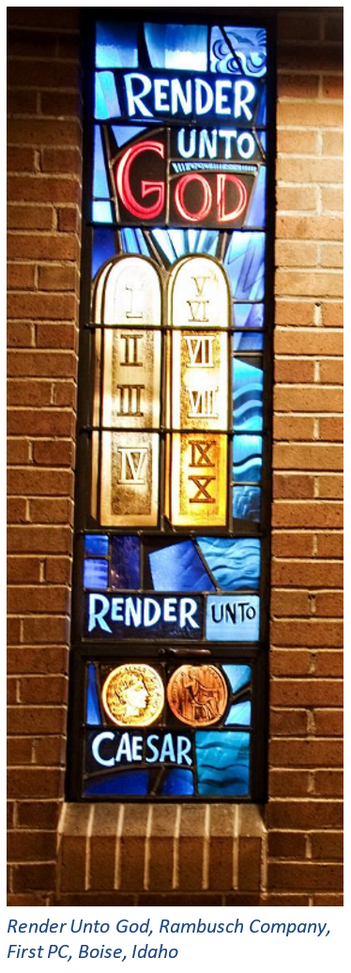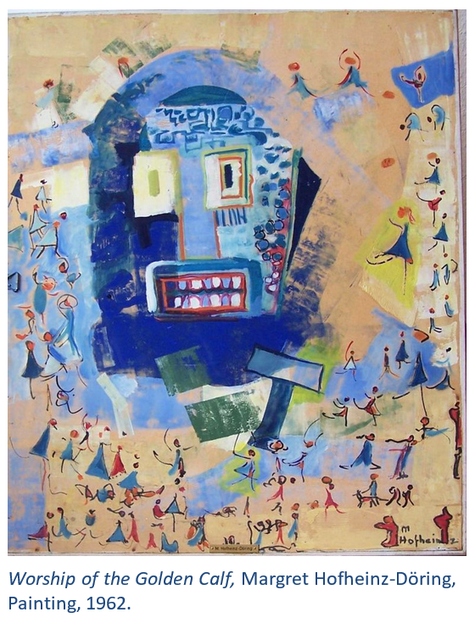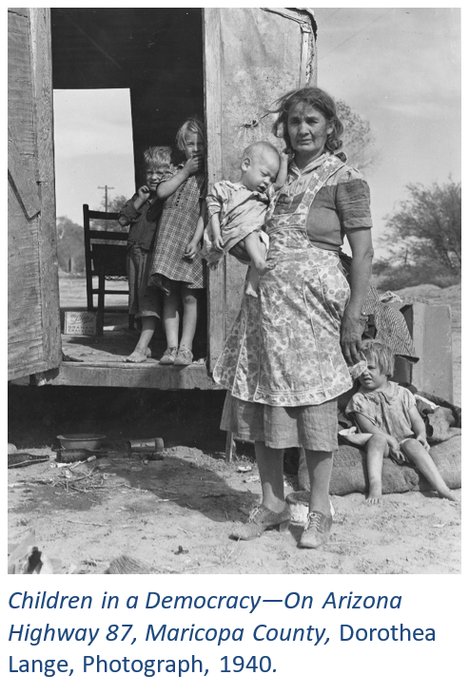 [Jesus] said to [the lawyer], “‘You shall love the Lord your God with all your heart, and with all your soul, and with all your mind.’ This is the greatest and first commandment. And a second is like it: ‘You shall love your neighbor as yourself.’ On these two commandments hang all the law and the prophets.” ~Matthew 22:37-40 Love God. Love neighbor. It seems simple enough. It is as if we could stop there. But we can’t. The scriptures continue to add on, add context, add specificity, add nuance to explore the meaning of this. And so, it seems, we must do the same. This is the heart of our faith, according to Jesus, but it requires interpretation and perspective and review. This Sunday we are going to do this in a different way again. In the context of worship, we have a panel of folks from the congregation who will join us in conversation in the space the sermon normally occupies, offering their learnings from these past months of engagement with our neighbors and our St. Andrew community, helping us to mark and interpret where we have come in this past year. Among the participants are Nikki Gibson, Andrea Shirey, Bob Seel, Pat Sharpe, Vince Kallberg, and Laura Clawson. Jill Jones will moderate. Enter into worship. Readings: Deuteronomy 34:1-12 † Psalm 90:1-6, 13-17 † 1 Thessalonians 2:1-8 † Matthew 22:34-46 About the Art: Wooden Love Sign, from Art in the Christian Tradition, a project of the Vanderbilt Divinity Library, Nashville, TN. https://diglib.library.vanderbilt.edu/act-imagelink.pl?RC=57756 [retrieved October 24, 2023]. Original source: https://www.flickr.com/photos/mastababa/2398441001/.
0 Comments
 And [God] said [to Moses], “I will make all my goodness pass before you, and will proclaim before you the name, ‘The Lord’; and I will be gracious to whom I will be gracious, and will show mercy on whom I will show mercy. ~Exodus 33:14 Give to God what is God’s, and to Caesar what is Caesar’s… Jesus gives this response to Pharisees and Herodians—uneasy partners who, in fact, do not agree with one another on much of anything, but find commonality in their opposition to this one who threatens their hold on what, in truth, is God’s. In their desire to entrap and neutralize Jesus they find shared aims in their hypocrisy and lust for power. Even so, there is no clear-cut way to truth. God, in God’s goodness, is gracious and merciful (to whom God will be gracious and merciful). “To whom?” indeed. So Jesus answers the question—and doesn’t. It seems we must answer it ourselves. The moment, like our own, leaves much to be desired. Dual and constantly fluctuating allegiance is always a fact of life. What do we owe, and to whom do we owe it? What currencies shall we render in these fraught days? And in what and in whom does our hope and future lie? Enter into worship. Readings: Exodus 33:12-3 † Psalm 99 † 1 Thessalonians 1:1-10 † Matthew 22:15-22 About the Art: Rambusch Company. Render unto God, from Art in the Christian Tradition, a project of the Vanderbilt Divinity Library, Nashville, TN. https://diglib.library.vanderbilt.edu/act-imagelink.pl?RC=57749 [retrieved October 9, 2023]. Original source: https://www.flickr.com/photos/genbug/4224456786/ - Laura Gilmore.
 Once more Jesus spoke to them in parables, saying: “The kingdom of heaven may be compared to a king who gave a wedding banquet for his son…” ~Matthew 22:1-2 The king who is hosting a wedding banquet is widely perceived to represent God and God’s son Jesus. But the king in this story is demanding and venomous. He’s more like Herod or other ancient near-eastern rulers, and seemingly alarmed that he’s losing his grip on power—a golden calf of an idol, to be sure! Tali Hairston reminded us last week of the link between scarcity and violence. Is this story an illustration of that link? If so, what has it to say to us, amidst a sea of institutions that are similarly losing a hold on the power they have long taken for granted—religious institutions among them? What has this story to tell us of the kindom of heaven for which we long and to which we belong? Enter into worship. Readings: Exodus 32:1-14 † Psalm 106:1-6, 19-23 † Isaiah 25:1-9 † Psalm 23 † Philippians 4:1-9 † Matthew 22:1-14 About the Art: Hofheinz-Döring, Margret, 1910-. Worship of the Golden Calf, from Art in the Christian Tradition, a project of the Vanderbilt Divinity Library, Nashville, TN. https://diglib.library.vanderbilt.edu/act-imagelink.pl?RC=55987 [retrieved September 18, 2023]. Original source: http://commons.wikimedia.org/wiki/File:Tanz_ums_goldene_Kalb,_Margret_Hofheinz-D%C3%B6ring,_%C3%96l,_1962_(WV-Nr.2756).JPG.
 Jesus said to them, “Have you never read in the scriptures: ‘The stone that the builders rejected has become the cornerstone; this was the Lord’s doing, and it is amazing in our eyes’? ~Matthew 21:42 The Mosaic law, summed up in the ten commandments (Exodus 20) lays out the outline of a pathway that is life-giving for all. But the story of humanity seems to so often be centered on our failure to navigate this way faithfully, leading to chaos and trouble—especially for those among us who are most vulnerable—even as they are not the cause of this trouble. We know this. But this is not the end of the story for a God on the side of the poor, on the side of the earth, on the side of everlasting life. God always seems to be up to something new that pulls through the golden threads of God’s way of shalom—justice, peace, and well-being. The stone the builders rejected has become the cornerstone. This story of salvation is one that constantly surprises us—those of us who think we have it all figured out, and those of us who long for what we know could be. To some it is received as threat, but for all it is good news. We must only learn to see it, to receive it, to welcome it and water it and nurture it. And in a time when the old models and the old institutions seem to be failing us, this requires careful and intentional listening.
Enter into worship. Readings: Exodus 20:1-4, 7-9, 12-20 † Psalm 19 † Philippians 3:4b-14 † Matthew 21:33-46 About the Art: Lange, Dorothea. Children in a Democracy -- On Arizona Highway 87, Maricopa County, from Art in the Christian Tradition, a project of the Vanderbilt Divinity Library, Nashville, TN. https://diglib.library.vanderbilt.edu/act-imagelink.pl?RC=55632 [retrieved October 3, 2023]. Original source: http://commons.wikimedia.org/wiki/File:On_Arizona_Highway_87,_south_of_Chandler._Maricopa_County,_Arizona._Children_in_a_democracy._A_migra_._._._-_NARA_-_522527.jpg.
|
worshipYou'll find here links to weekly worship and, where applicable archived service videos. Archives
July 2024
Categories |

 RSS Feed
RSS Feed